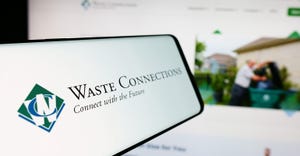EPA Study Concludes that E-Waste Recycling Certification Programs on Target
The U.S. Environmental Protection Agency (EPA) has determined that the two electronics recycling certification programs are doing what they were set up to do– improve the management of used electronics in the United States.
The EPA released a study assessing the implementation of the two third-party programs for e-waste recyclers in the United States. It found that the certification standards are being implemented by auditors with “thorough” knowledge of the standards.
“EPA’s study affirms that e-Stewards and R2 certification programs are helping to improve the responsible management of used electronics in the United States,” said Mathy Stanislaus, assistant administrator for EPA’s Office of Land and Emergency Management, in a news release. “We remain committed to continuing the dialogue started by this study to identify opportunities for continued improvement in management of used electronics.”
The Responsible Recycling Standard for Electronics Recyclers (R2) and the e-Stewards® Standard for Responsible Recycling and Reuse of Electronic Equipment (e-Stewards®) are accredited third-party standards for the management of used electronics to protect human health and the environment.
The limited study evaluated whether the standards are being implemented by the programs transparently and consistently, and also whether they are achieving the results that were intended. Both standards include strong environmental requirements that maximize reuse and recycling, minimize exposure of toxics to human health or the environment, ensure safe management of materials by downstream handlers and require destruction of all data on used electronics.
The report is based on stakeholder interviews conducted by the EPA and audits it observed. While it represented a small percentage of all certified electronics recycling facilities, it reflected the range of facility and audit types as well as services.
Strengths of the programs include clear and effective roles and responsibilities among the key implementers, and opportunities for constructive feedback integrated through the system.
The study also offered recommendations for improving the overall effectiveness of implementation, including additional training and providing regular updates to the standards.
The study was conducted in collaboration with the U.S. General Services Administration and the ANSI-ASQ National Accreditation Board.
The United Nations has determined that up to 90 percent of the world’s e-waste is illegally traded or dumped each year. Waste360 recently has looked at the nations that generated the most e-waste by volume in 2014, and countries by per-capita e-waste generation.
Part of the challenge with e-waste recycling is what is defined as e-waste. Waste360 Recycling Business columnist Jason Linnell examined the problem in a recent column. One area where it can be a particular concern is legislation.
About the Author
You May Also Like


